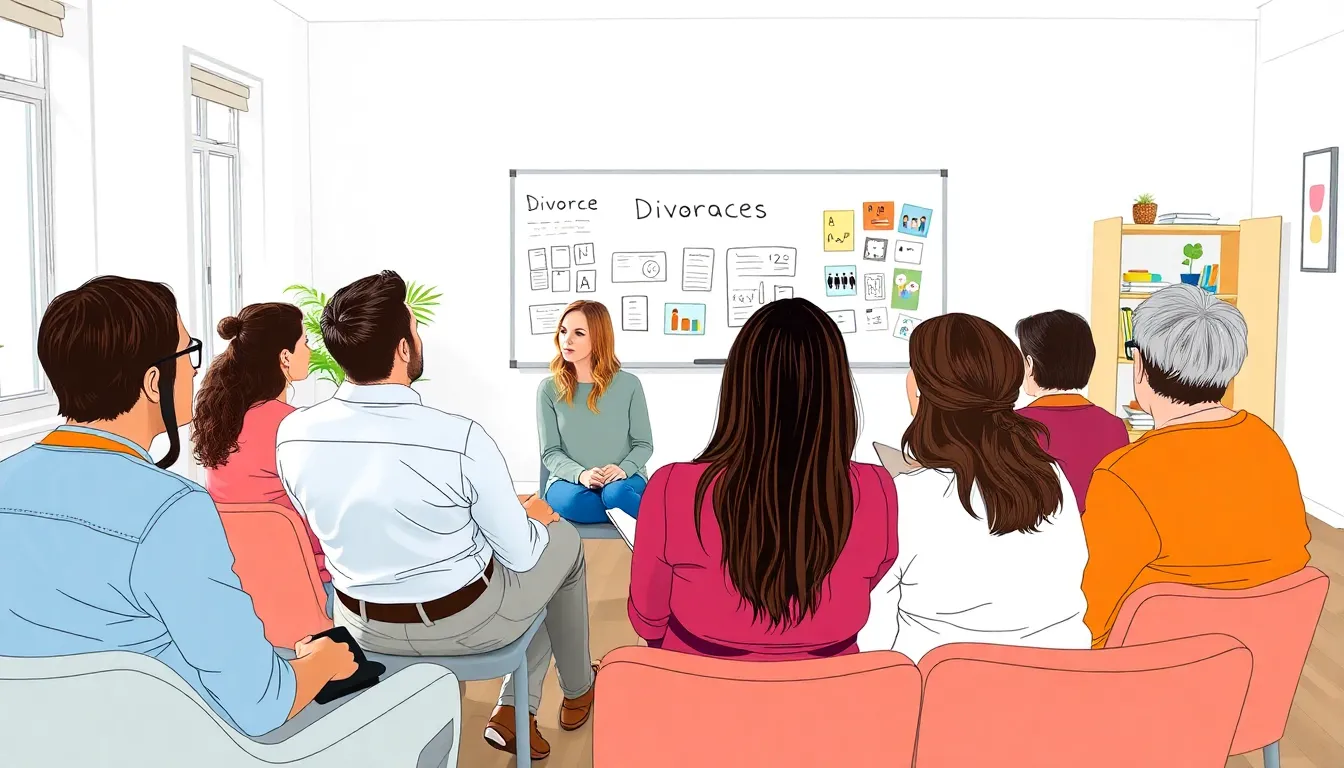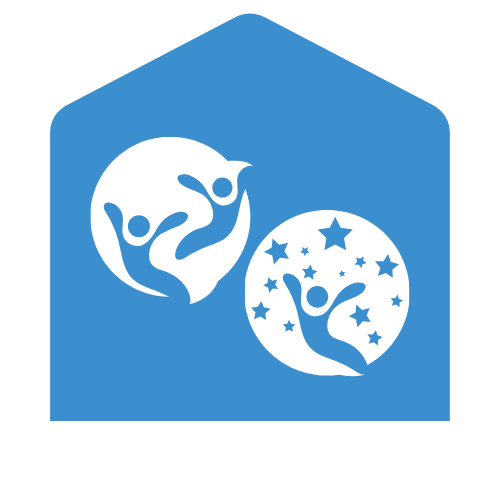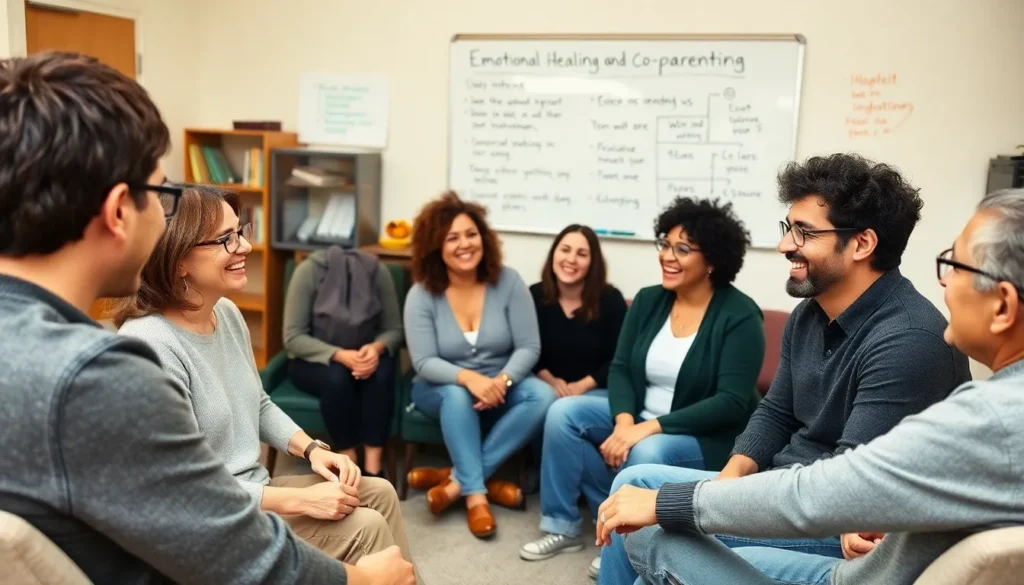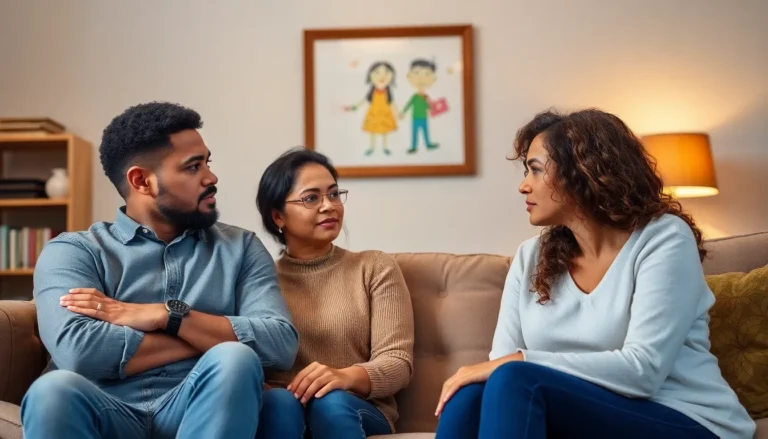Table of Contents
ToggleDivorce isn’t just a legal process; it’s often a rollercoaster of emotions, confusion, and unexpected twists. For those navigating this bumpy ride, a divorce course can be the seatbelt that keeps them secure. Imagine learning how to untangle the complexities of separation while chuckling at the absurdities of life’s curveballs.
These courses don’t just offer practical advice; they sprinkle in humor and camaraderie, turning a daunting experience into a supportive community. Whether it’s mastering co-parenting or understanding legal jargon that sounds like it’s from another planet, these courses equip individuals with the tools they need to thrive post-divorce. So why not take a leap and invest in a course that makes the journey a little lighter? After all, laughter might just be the best therapy.
Understanding Divorce Courses
Divorce courses serve an essential role in navigating the challenges of separation. They offer structured support, equipping individuals with necessary skills and knowledge.
Definition and Purpose
Divorce courses are educational programs designed to guide individuals through the complexities of divorce. They focus on specific topics like emotional coping strategies, legal terminology, and co-parenting skills. Engaging in these courses helps participants understand the divorce process better, promoting informed decision-making. By providing a supportive atmosphere, these courses foster connections among participants, enhancing the overall experience.
Benefits of Taking a Divorce Course
Taking a divorce course yields numerous benefits for individuals facing separation. Participants gain practical advice that enables them to navigate emotional challenges effectively. Courses often incorporate humor, making the process more enjoyable while fostering a sense of community. Learning co-parenting techniques equips individuals to manage shared responsibilities and reduce conflict. Understanding legal terms empowers participants to make informed choices, ultimately creating a smoother transition post-divorce.
Types of Divorce Courses

Divorce courses come in various formats, catering to different preferences and needs. Understanding these options helps individuals choose the path that suits them best.
Online vs. In-Person Courses
Online courses offer flexibility and convenience, allowing participants to engage at their own pace. Many popular platforms provide resources such as videos and interactive exercises. In-person courses create a sense of community through face-to-face interaction. Participants often value the shared experiences and support from peers. Each format has its advantages, so individuals can select based on their comfort level and learning style.
Specialized Programs for Different Needs
Specialized programs address unique situations such as high-conflict divorces or those involving children. Certain courses focus on co-parenting strategies, helping parents navigate challenges after separation. Others may include financial literacy elements, ensuring participants understand the economic implications of divorce. Tailored approaches enhance the effectiveness of these courses, enabling individuals to gain relevant insights. Choosing a specialized program can lead to a more focused and beneficial experience.
Choosing the Right Divorce Course
Selecting the right divorce course plays a crucial role in navigating the complexities of divorce. Individuals can gain structured support and meaningful insights tailored to their needs.
Factors to Consider
Participants should consider course format first. Online offerings provide flexibility while in-person sessions encourage community support. Assess course content next. A focus on practical skills like co-parenting or financial literacy enhances the experience. Instructor qualifications also matter; experienced professionals often bring real-world expertise. Location may be significant for those opting for in-person courses, with convenient local options simplifying attendance. Lastly, evaluate course length and schedule. A suitable timeframe supports commitment and completion.
Questions to Ask Before Enrolling
Potential attendees must ask how the course addresses specific needs. Identifying coverage for emotional wellbeing or legal knowledge is key. Consider whether the curriculum includes expert-led sessions or guest speakers. Inquire also about group size, as smaller classes can lead to more personalized interactions. Confirm the availability of resources like workbooks or online materials for additional practice. Lastly, determine if the course offers a satisfaction guarantee or refund policy to ensure a risk-free investment.
What to Expect from a Divorce Course
Participants in a divorce course can anticipate a structured approach to navigating their experiences. Understanding the curriculum helps in managing expectations for what attendees will learn.
Curriculum Overview
Designed to address real-life challenges, the curriculum often includes topics like emotional healing and practical legal knowledge. Course materials typically cover co-parenting strategies, financial literacy, and stress management techniques. Classes may employ interactive elements through discussions and activities, encouraging participant engagement. Information on local resources, such as legal aid and counseling services, often complements the main topics. A focus on building a supportive community enhances the overall learning experience, leading to lasting connections among attendees.
Support and Resources Available
Support systems play a crucial role in divorce courses. Participants usually gain access to various resources, including expert-led discussions and networking opportunities. Many courses provide supplemental materials such as workbooks and online forums for ongoing discussion. Access to local support groups often exists, connecting individuals with others on similar paths. Emotional wellness programs also frequently accompany these courses, ensuring participants receive comprehensive care during their transition. This holistic approach fosters resilience, helping individuals navigate their journey with greater confidence.
Embracing the journey through divorce can be daunting but enrolling in a divorce course can significantly ease the process. These courses not only provide essential tools and knowledge but also foster a supportive community. Participants gain valuable insights into co-parenting and emotional healing while sharing experiences with others who understand their struggles.
Choosing the right course tailored to individual needs can make all the difference. With options available online and in-person, individuals can find a format that suits their lifestyle. Investing time in a divorce course can lead to a smoother transition and a brighter future, allowing individuals to emerge from this challenging chapter with confidence and resilience.







